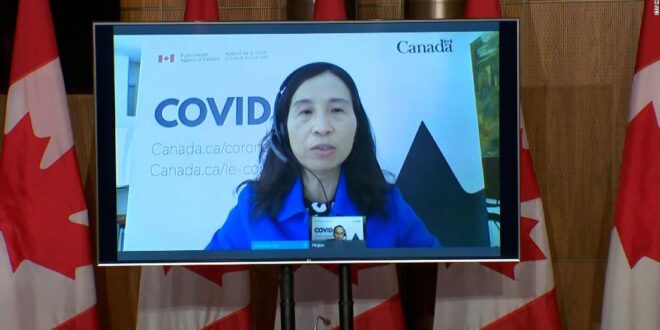“This isn’t the news any of us wanted, but hospitalizations are surging, ICU beds are filling up, variants are spreading and even people who had convinced themselves they didn’t need to be concerned are getting sick,” Canadian Prime Minister Justin Trudeau said at a news conference Tuesday, adding this is a “very serious” third wave of the pandemic.
Intensive care unit admissions are up 18% in the past week alone, and the new variants are placing a “heavy strain” on hospital capacity, the Public Health Agency of Canada said.
“Many of them deteriorate quite quickly and have to be admitted to the ICU quite immediately, and then they spend quite a bit length of time staying in the ICU, which means that there’s a capacity impact as well,” Tam said.
While hospitalizations haven’t increased dramatically, more of the patients admitted are now needing critical care as variants are making them more severely ill, she said.
In Toronto, public health officials ordered all elementary and secondary schools to stop in-person learning and shift to remote learning, effective Wednesday, as they try to “reverse the surge of infection that the province currently faces,” Toronto Public Health said.
Ontario, whose capital is Toronto, is debating new and more restrictive measures, including a stay-at-home order, as its ICU capacity is increasingly strained.
The order will be in place from April 7-18, according to the guidance issued Tuesday, and may be extended.
“Current circumstances require that difficult decisions must be taken locally to protect all those in our school communities, including students, teachers and staff,” Toronto Public Health said.
British Columbia has moved to close the Whistler ski resort and further restrict gatherings in the province, which is now also coping with an outbreak of the virus among NHL hockey players with the Vancouver Canucks.
This week, Canada surpassed 1 million Covid-19 cases since the pandemic began. Tam called that milestone a “stark reminder” of everything Canadians have been through.
While the B.1.1.7 variant has now likely become the dominant variant in Canada, Tam said her team is also keeping a close eye on a significant outbreak of the P.1 variant, first detected in Brazil and now surging in some western Canadian provinces.
Monday, British Columbia’s health minister said the number of cases of the P.1 variant in his province almost doubled over the Easter holiday weekend.
“The most transmissive variants of Covid-19 are ultimately going to take over,” Adrian Dix said in a Monday update.
CNN’s Elizabeth Stuart and Theresa Waldrop contributed to this report.
 Top Naija News: Nigerian News, Breaking News Nigeria and World News Top Naija News is a daily news publication in Nigeria, delivering the latest breaking news in Nigeria and around the world.
Top Naija News: Nigerian News, Breaking News Nigeria and World News Top Naija News is a daily news publication in Nigeria, delivering the latest breaking news in Nigeria and around the world.




